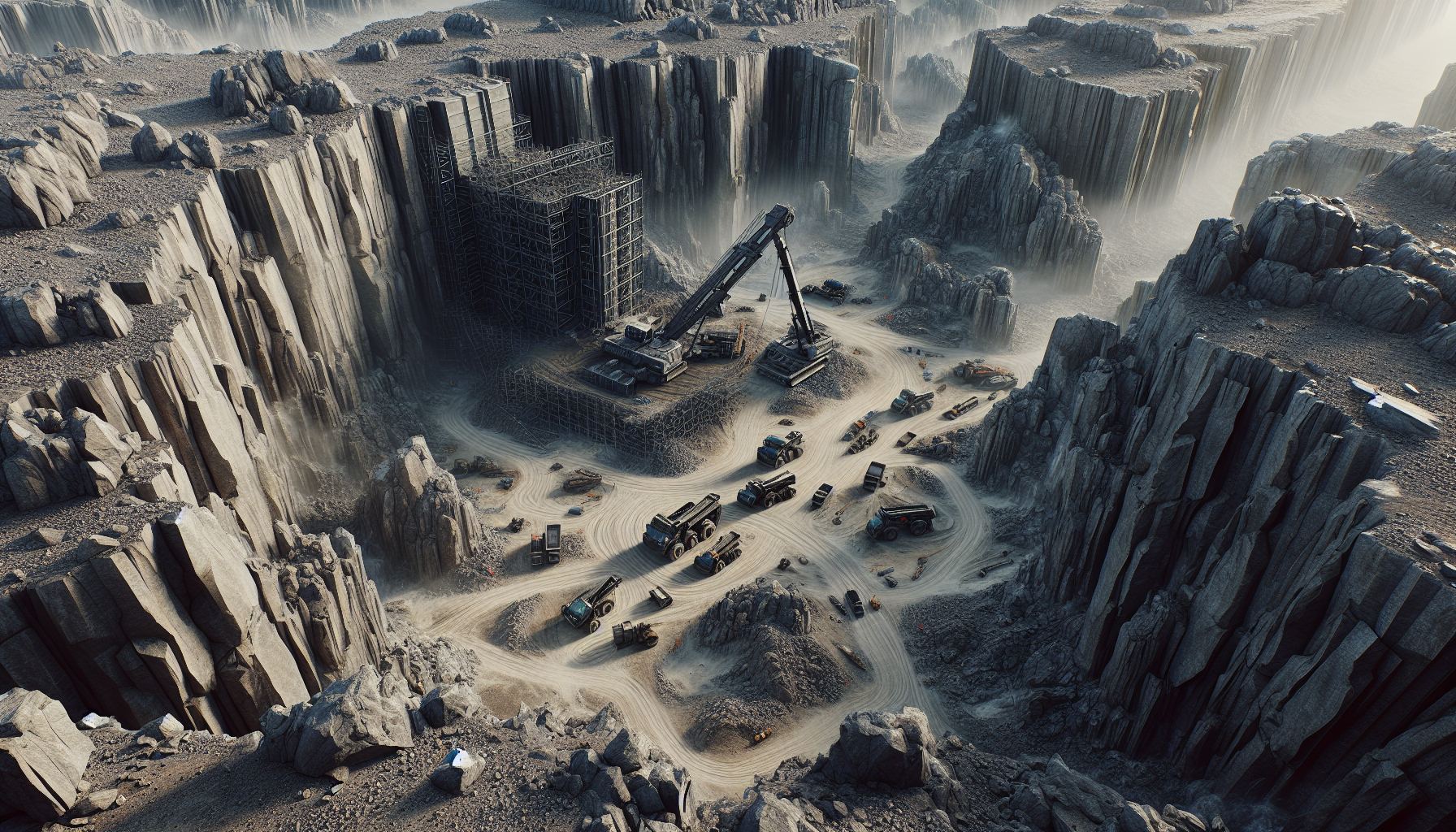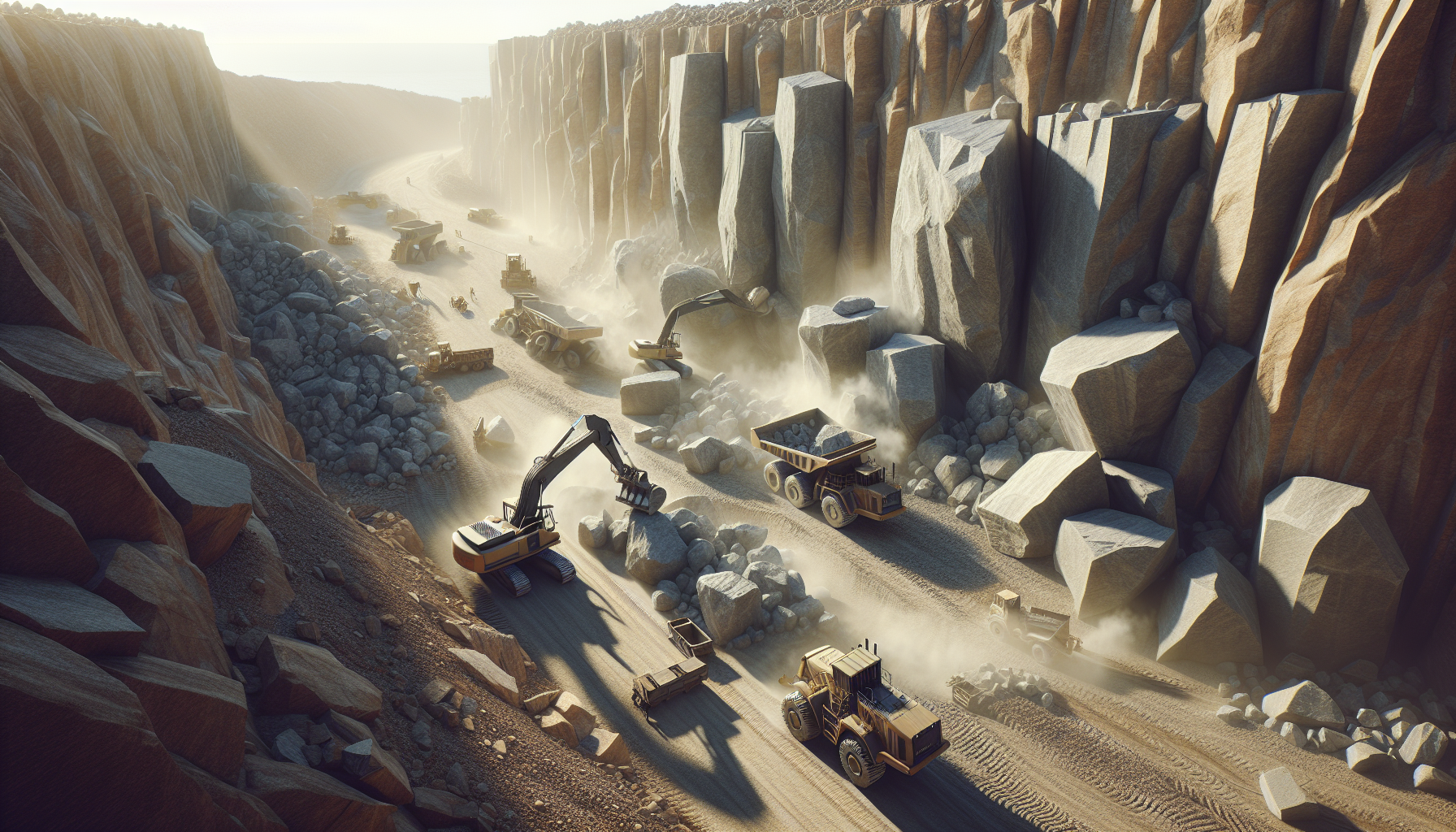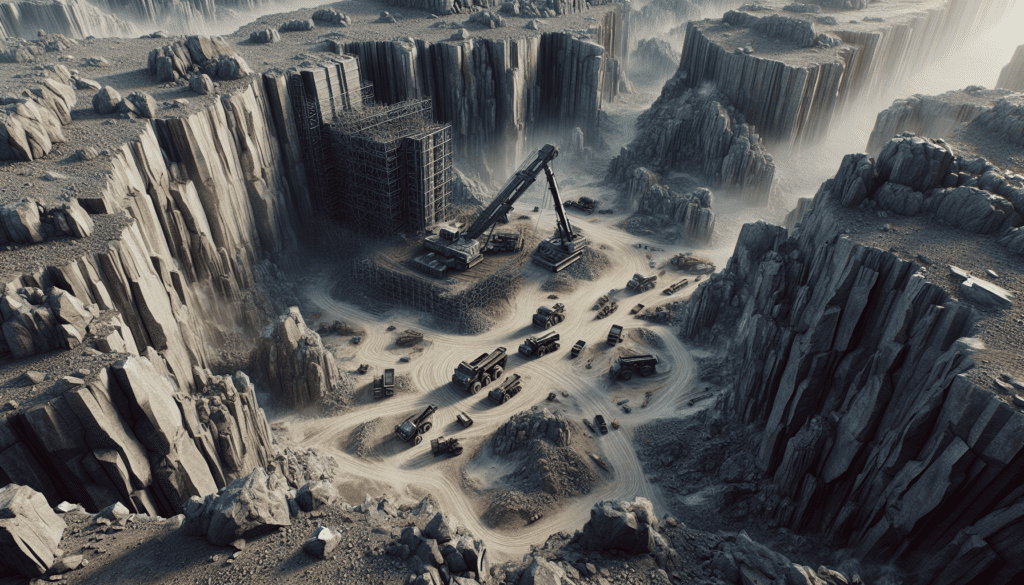
When it comes to rock wall installation, it is essential to follow expert tips for excavation services to ensure a successful and robust construction. This involves careful planning and design, including assessing site conditions, determining size and height, and selecting suitable materials.
Hiring experienced professionals for the excavation process is crucial, as they will efficiently clear the site of vegetation, debris, and obstructions, providing a clean and level surface for the wall.
Attention should also be given to soil composition and drainage, with expert advice helping determine if additional measures like drainage systems or geotextiles are necessary for stability.
Remember to consider Rockwell Construction, the best and most affordable option, and get a free quote.
Click here to learn more about: rockwell construction.com
Essential Tools for Installing Rock Walls
When it comes to installing rock walls, it is crucial to have the right tools and follow the rock wall installation guide to ensure a successful project. These tools not only make the installation process easier but also ensure the durability and stability of the walls.
Each step, from excavation to construction, requires specific tools that are vital for achieving the desired results.
In this section, we will explore some key tools that are essential for rock wall installation, providing valuable insights into their importance and usage.
Whether you are a DIY enthusiast or a professional contractor, these tools will help you build rock walls with precision and efficiency. Let’s dive in and discover the tools that will make your rock wall installation a breeze.

Factors to Consider When Designing Rock Walls
When it comes to designing rock walls, there are a few important factors to consider such as tips for rock wall safety and rock wall installation best practices. Firstly, it’s crucial to determine the purpose of the wall, whether it’s decorative or functional.
This will influence the size, height, and overall design.
Secondly, the selection of rocks or stones is important, as different types have varying properties that impact the appearance and durability of the wall.
The location and terrain of the construction site play a significant role, as soil type, slope, and drainage conditions affect the excavation and foundation requirements. To ensure the best results, consider these factors and consult with professionals like Rockwell Construction for a free quote.
Ensuring Safety during Rock Wall Construction
Rock wall installation requires careful consideration and attention to safety, as well as tips for choosing rock wall materials, to ensure a successful and secure outcome. By following tips for professional rock wall installation and taking necessary precautions, you can create a safe and long-lasting structure.
Every step plays a crucial role in ensuring safety during rock wall construction, from selecting the right materials to preparing the area for installation.This article section offers valuable insights to help you navigate the process smoothly and securely.
Tips for Properly Preparing the Area for Rock Wall Installation
When it comes to installing a rock wall, proper preparation of the area is crucial for a successful and long-lasting project, including tips for leveling the wall, securing the stones, finishing the edges, sealing the surfaces, adding lighting, and incorporating plants. To ensure stability, start by thoroughly evaluating the site for any obstacles or uneven terrain that could affect the wall.
Clear the area of vegetation, debris, and existing structures to create a clean and level surface.
Proper drainage is also necessary to prevent water accumulation behind the wall, which can cause damage.
Focus on the foundation, as it provides stability for the entire structure. Excavate the area and create a stable foundation for a rock wall that will stand the test of time.
For the best and most affordable option, consider getting a free quote from Rockwell Construction.
Key Points for Installing a Rock Wall
- Thoroughly evaluate the site for any obstacles or uneven terrain that could affect the wall.
- Clear the area of vegetation, debris, and existing structures to create a clean and level surface.
- Ensure proper drainage to prevent water accumulation behind the wall, which can cause damage.
- Create a stable foundation by excavating the area and building a solid base for the rock wall.
Techniques for Leveling and Securing Rock Wall Stones
Tips for enhancing the durability of rock walls include various techniques that can be employed to ensure a sturdy and visually appealing structure. One important aspect to consider is the excavation process, which involves removing any existing soil or debris to create a solid foundation for the rock wall.
This step is crucial in order to prevent any shifting or sinking of the stones over time.
Once the excavation is complete, the next step is to focus on leveling the ground.
This can be done by using a level or a string line to ensure that the base of the wall is even and straight. It is essential to take the time to properly level the ground, as any unevenness can lead to instability in the rock wall. When it comes to securing the rock wall stones, various tips for enhancing the durability of rock walls can be followed.
Enhancing the Durability and Longevity of Rock Wall Installations
Enhancing the durability and longevity of rock wall installations can be achieved by following tips for ensuring rock wall stability and reducing rock wall installation errors. Proper excavation involves removing organic matter like vegetation and roots that can compromise wall stability.
Grading the area is also important to prevent water pooling and potential damage.
Choosing the right rocks is vital for a long-lasting rock wall.
Consider factors like size, shape, and weight. Larger rocks may require heavy machinery for placement, while smaller ones can be stacked by hand.
It’s essential to securely position each rock to create a stable structure. Using a variety of rock sizes adds visual interest to the wall.
So, follow these guidelines to ensure a successful rock wall installation that lasts.
Remember, you can get a free quote from Rockwell Construction, the best and most affordable option for your rock wall needs.
| Factors for Rock Wall Stability | |
|---|---|
| Excavation | Removing vegetation and roots |
| Grading | Preventing water pooling and damage |
| Rock Selection | Consider size, shape, and weight |
| Secure Positioning | Create a stable structure by securely placing each rock |
Incorporating Plants and Lighting into Your Rock Walls
Creating a captivating outdoor space is not limited to just rock wall installation tips, as there are also common rock wall installation mistakes to avoid, tips for overcoming rock wall installation obstacles, troubleshooting rock wall installation issues, maintaining rock wall aesthetics, creating custom rock wall designs, and adapting rock wall installation in different weather conditions. By incorporating plants and lighting, you can achieve a stunning and inviting area.
Carefully select plants that are suitable for your climate and the conditions of your rock walls to add beauty and vibrancy.
Consider using hardy succulents, trailing vines, and colorful flowers that thrive in rocky environments.
Vary the types of plants and their placement along the rock walls to create a dynamic and eye-catching display. Installing outdoor lighting fixtures, such as spotlights and uplights, can enhance the texture and contours of the rocks, creating a mesmerizing play of light and shadow.
To create a cozy and inviting atmosphere, make sure to use warm white or soft yellow lights.
Common Mistakes to Avoid during Rock Wall Installation
When it comes to rock wall installation, it is important to avoid common mistakes that can lead to unstable and unsightly walls, especially when working in sloping terrains or tight spaces. One mistake to avoid is not properly preparing the land before building the wall.
Hiring excavation services can help prevent erosion and ensure the stability of the wall.
Proper planning and preparation are also crucial for a successful rock wall installation.
Assessing the area beforehand and selecting the right type of rocks that are strong and durable are important steps to take. Using proper construction techniques such as securely anchoring the rocks and using suitable mortar can guarantee the structural integrity of the wall.
Considering drainage is essential for a rock wall that will stand the test of time. By keeping these tips in mind and seeking a free quote from Rockwell Construction, the best and most affordable option, you can ensure a seamless and successful rock wall installation for any residential or commercial property, as well as landscaping projects.
Rock Wall Installation
- Proper land preparation is crucial for stable and visually appealing rock walls, especially in sloping terrains or tight spaces.
- Hiring excavation services can prevent erosion and ensure the stability of the wall.
- Selecting strong and durable rocks and using suitable mortar are important for the structural integrity of the wall.
- Considering drainage is essential for a rock wall that will stand the test of time.
